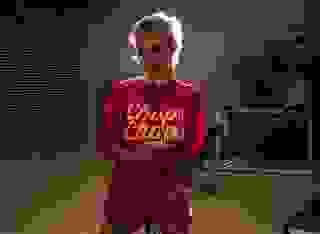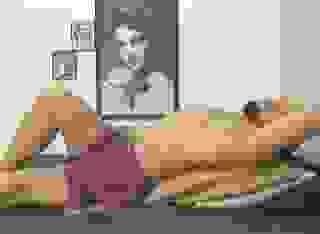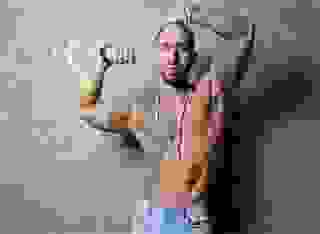- Gay Male
- The Heart is a Poor Judge Ch. 03
Note: You can change font size, font face, and turn on dark mode by clicking the "A" icon tab in the Story Info Box.
You can temporarily switch back to a Classic Literotica® experience during our ongoing public Beta testing. Please consider leaving feedback on issues you experience or suggest improvements.
Click hereGabe still has the note his mother left him before ending her life. Its body reads, "As you know, my childhood was filled with sad things, but because of your father, and because of you, I was able to be happy for many years. Thank you for bringing me joy. Please don't worry about me, or be sad that I am gone. Find my diaries in the black dresser and keep them with you. Sell everything else at your discretion to ease financial burden. As you read this, know that I am with your father again. I am confident you have everything you need to be happy in this world. Your time among the living will be long, and it will be joyful."
"Gabe," I repeat. He stares out the front window. It is a sunny day, clear and hot. The lawn surrenders its overnight moisture in steaming waves.
He looks at me suddenly. "What?"
"Do you want to take a break?"
"No," he says. "Sorry. What did you ask me before?"
"I asked if you still believe in the Willow Man."
Gabe breathes out in one steady gush of air and folds his hands in his lap. "No." He is thoughtful for a moment, then laughs in an odd way. "No, the Willow Man has gone away forever."
"What was that thing your neighbor used to say to you? The little verse?"
More quiet laughter as pen moves across paper. "They chose to walk toward him. I chose to flee. He took all the others, but he didn't take me."
--
Three nights in a row, Gabe helped himself to friendly conversation with Miguel. He wrestled with this indulgence, believing it to be both risky and necessary for the sake of his sanity. He wasn't sure what to think of his strange new acquaintance. But the young man had so far been superficially kind to him, and didn't act like he had anything to prove, to anyone—a trait that, by itself, Gabe liked very much.
As Gabe rode the Orange Line back into the city, the thought bolted through his mind that Miguel might even be like him. Of course, this was only wishful thinking—and what exactly was he wishing for? What about the possibility did he find so magnetic?
Gabe disliked these distant reaches of the city, so sprawling and wide open, preferring the boundaries (physical and otherwise) imposed by the cozy streets he called home. To his right, ornate but chintzy fencing separated rail from roadway. Across four vast empty lanes lay a sidewalk the color of unstained teeth, followed by a wasteland of painted asphalt. At last, glowing big box stores ballooned laterally in the hazy distance like a whole shelf's worth of books flaunting their front covers instead of their bindings. To Gabe's eye, there was something shameless about it. Something arrogant. Along this section, the train operated as nothing more than a streetcar, exposed to the pitch-black morning, halting at traffic signals, yielding to phantom cars, and finally ducking underground at Biscayne, where it would accelerate through miles of cut-and-cover tunnel as if set free.
Before long, the walls of the tunnel closed in, and he found comfort near them. He was exhausted, nodding off a few times during the half-hour journey underground. Each time he opened his eyes, a few more people filled seats; by the time the train came to a lurching halt along the terminus platform, only a handful of open spaces remained. He was fully alert now, alive with the promise of some as-yet-unknown encounter. In one jerky, pre-programmed movement, he set off on his diversion, bumping past early-risers and night-owls until he landed himself at the top of the corridor.
Someone had fixed the lights. Not all of them were replaced, but it seemed a modest surplus of tubes had finally found their way into dusty sockets. The passage suffered under such honest light. Stained porcelain wall tiles grew a more putrid yellow and pieces of waste materialized all around him. A women's magazine lay open near his feet, ink bleeding across its damp pages.
Gabe could already make out the frame of the doorway to the men's room, but as the automatic motion of his legs bore him closer, he knew something was wrong. He arrived within ten feet of it and saw that the door was completely gone, obliterated. No light at all came from within. In spite of this fact, for reasons he could not comprehend, he wanted to walk through anyway, coaxed into a darkness so complete that even light from the freshest of fluorescent bulbs did not dare trespass. There was something so perfect about this black, this void, so minimal and sterile among its surroundings.
But then an odd clattering noise hooked into his right ear. He turned toward it, seeing, to his shock, that the barricade preventing access to the abandoned platform had vanished, every last brick removed, carried off. How had he not noticed until now? The floor and walls showed only faint scarring; otherwise it may as well have never existed. He stepped cautiously beyond, moving toward the sound, approaching the ghostly platform itself, cast in gloomy incandescence. On the wall above the rail trench, lettering peeked from beneath the grime in antiquated, blood-red script: Odin Line - Central. He locked his eyes on the words, emerging from the dusty tube, halting at the center of the cavern.
He heard his own voice shout across the platform: "What do you want?"
Immediately, the dry rasp of a reply landed near the base of his skull—an occipital ache that pulsed at each syllable. "I want nothing," it told him. "I have already taken her."
Please, God, let it not be true. Gabe bolted toward the platform's exit, reentering the tiled hallway. He continued steadily over the fading scars of the barricade, past the closed door to the men's room. Finally, he remerged with foot traffic in the larger corridor. He had captured something back at that forgotten place, though, right as he turned to leave: a glimpse of the gaunt, grinning figure down in the trench, standing on powder-white femurs at the mouth of the single-width tunnel, through which the last of the Odin Line trains made its final pass so many years ago.
--
Gabe was twelve years old when they first met. His parents had invited the tall, strapping man over for dinner, as well as the man's girlfriend, Lydia, whom his father described as very beautiful and quiet white girl. Up until that time, Gabe had known Eddie only as the deep voice that called their home on occasion, asking to speak to his father. As the couple arrived, that same voice had boomed through the gap in Gabe's bedroom door. Half an hour later, when it dared to utter Gabe's name, Marco had replied, "He's in his room. Quiet kid, these days. Likes to keep to himself." Then his father had called for him, and Gabe had reluctantly joined them.
Eddie was younger than Gabe's father. His distinctive appearance had captivated Gabe: Such a powerful physique felt infinitely distant from his own pitiful pubescence, impossible, forever unattainable. And of course there were Eddie's other physical qualities: his face and arms so deeply tanned, that certain origin of his features so transparent—so unapologetically Vietnamese. Gabe had never seen anything like it. Eddie displayed a coercive fullness of his ethnicity, the very same to which Gabe was only half-entitled, and for the first time in his life, Gabe had longed for all of it, so that he could hope to one day wear it as beautifully.
It was only as Eddie casually stroked the back of his girlfriend's hand that Gabe had noticed how distinctly attractive she was. Her frame was slight, especially next to Eddie; her hair, a pale golden color, parted from one side and fell below her shoulders, unlike the popular style of the time. When she smiled it was bright and genuine, showing off perfectly white teeth. As their hands touched, Gabe was scandalized that two people of such stark visual dissimilarity could be together in that way. While his wonder at this aspect had quickly faded, his bewilderment at Eddie's imposing physical form would linger for some time.
Gabe's mother had outdone herself in anticipation of these rare visitors. Once they were seated in the dining room, she presented them all with hot, oily spring rolls, grilled pork and pickled vegetables over rice noodles; there was also cold soba, lemongrass shrimp, and, near the end, sweet and milky iced coffee. Gabe ate everything greedily, jealous that only Eddie's presence justified such an extravagant meal. Over the coffee, Gabe's father had offered Eddie the opportunity of a business partnership. Eddie had acted surprised and deeply flattered, accepting immediately.
After dinner, they had retired to the living room for drinks, and Gabe was dismissed. An hour or two later, Eddie and Lydia left for home. Gabe's father had gone out onto the balcony to smoke, and Gabe helped clean up in the kitchen, scrubbing grease splatters from the stovetop and side of the microwave.
His mother spoke slowly to him. She was not sober. "Thank you, Gabriel. You were very polite to Eddie tonight. Eddie is a very important person to our family. You have made me feel proud."
Gabe had nodded silently, wincing each time her voice slurred.
"No matter who you end up to be, you must know how proud I am of you. You are strong and you are also capable. If you are ever in a place where no one is around to remind you of that, you must tell it to yourself, understand?"
He nodded.
The metallic wailing of the garbage disposal started up. His father reentered from the balcony carrying the crisp scent of Marlboros.
--
Gabe arrived at his floor, hand somehow steady as he brought out his keys and unlocked the front door. Inside smelled no different than out, the faint rot of fish from the market mingling with the sweet freshness of ocean air. The sliding balcony doors gaped open, their translucent white curtains left undrawn and billowing inward. He kicked off his shoes and walked back toward her bedroom.
Bonnie lay on top of the covers. Her eyes were closed. She had donned a wispy blue dress Gabe hadn't seen in years, and her peaceful features were reacquainted at long last with makeup. Her black hair was clean and tucked neatly back behind her ears. She looked absolutely beautiful.
On an oak nightstand to the left lay three pills that looked like oversized orange tic tacs, gathered together in a tidy row. Next to them, a stout glass of diluted liquid stood against the half-golden bottle of El Jimador. A fourth capsule nested in the carpet below.
He crept toward his mother and reached out to feel her arm. She had gone cold in the still heat of the room. He stumbled to her vanity and lifted the yellowing receiver. Don't cry, he begged himself. Don't panic. Yet he struggled when describing the scene to the dispatcher, so violent were his sobs, and new breaths came unreliably to his lungs as he was ordered to remain on the line.
--
Sunday, June 13th, 1999
"Are you going to live at our house?"
Gabe was not startled. He had been awake for half an hour already, had heard what he guessed were tiny feet moving across the carpet. He lifted the edge of the down comforter, squinting, eyes meeting with the small round face of a five-year-old. Eddie's oldest. "No."
"But you were sleeping here for three nights."
"I know."
"Are you a kid?"
"No, Gabby."
"Are you a teenager?"
"Yes, I'm a teenager."
"Oh." She sighed. "Your breath smells bad."
"Gabby, what are you doing in here?" (This time, Gabe was startled.) "You need to leave Gabe alone right now.'
Through the narrow gap, Gabe saw her grin up at her father. He brought the covers down under his chin, his black hair twisting furiously around itself. "It's okay, sir. It's her house, not mine."
"I told you, you can stop calling me sir."
"Okay."
"We're making breakfast upstairs. Join us if you feel up to it. ...And as for you..." Eddie announced, pouncing on his daughter, lifting her, giggling, into his massive arms, "...we're going to leave Gabe alone now, okay?"
"You can stop calling me sir," echoed her little voice, and then they were gone. Eddie closed the door behind him. Gabe heard her laughter continue up to the main floor.
He was alone. Cold air whooshed through a register in the ceiling. Every morning for three days he had come to the realization all over again—that he was alone. The proof, of course, was that he woke in the cool, pastel quiet of Eddie's suburban home. What other circumstance could possibly have landed him here?
Each day, the path his logic followed was worn deeper. Was she finally, truly gone? Yes, she was. After all, he wasn't still there; he was here now. So, why didn't he cry? Had he cried yet at all? That's right, he had cried himself to sleep last night, and the night before, and the night before that. But why was he still sad? She had been in permanent, unfixable misery for most of her life, especially in the last year. She had been absent for months. Should the mere fact that it was now official make everything different? And yet, Gabe did feel different. He felt a nagging regret, incessant, reminding him that he had done nothing to stop it. Because in a sense, he knew what had been coming.
He took a quick shower, dressed and headed upstairs. This family that was not his own sat around the breakfast table. Generally, spirits had not been at their highest, but the kids were too young to understand what had happened, and the warm glow characteristic of close family shone through. Eddie and his wife Lydia were at each end end of the table, dolling out portions of milk and jam. The twins cackled in booster seats and the baby perched in a cream-colored highchair. Gabby sat alone at one end of the wooden bench nearest the windows. Gabe slid in next to her.
Next came Lydia's soft, clipped voice. "Glad you could join us for breakfast. We have toast and fruit here, and cereal. There are more kinds of cereal in the cupboard. I can get them out for you."
"No thanks, this is more than enough. I don't usually eat breakfast."
"You should eat breakfast," said Gabby.
He couldn't help but smile over at her.
Eddie lifted a section of the paper. "Gabby thought it would be a good idea to wake up Gabe this morning."
"Uh oh." Lydia looked sternly at her daughter. "Gabby, didn't we tell you not to bother Gabe?"
Only now did Gabby show remorse, frowning and shaking her head. It broke Gabe's heart. Gabby looked at Gabe, and then back and forth between her parents. Her lips parted into a toothy grin, prompting a sigh from her mother.
Eddie turned to Gabe. "Don't forget there's a viewing around one o'clock, if you would like a chance to see her before the service."
"I don't think I need to."
"Alright." Eddie paused. "I'm going to head down there in a little while. Lydia will drive you this afternoon, after the sitter shows up."
Lydia nodded sympathetically. Gabe looked at Eddie, who looked back at him and then down at his plate.
"Sure," said Gabe. "That sounds good to me."
It was a lie. Nothing sounded good to him. He wasn't sure if the shock he continued to feel emanated from his mother's death, or from the sudden, prolonged exposure to Eddie's home life. Either way, he wanted out. The house was too big, too beige, and too quiet—despite the kids, who presented him with minimal but amusing distractions as the hours passed. The babysitter finally arrived in the afternoon, and Lydia and Gabe backed out of the garage in Eddie's massive Lincoln SUV. The red Honda waited glumly in the gravel beside the driveway.
A vast silence and emptiness took over the air-conditioned car. As they arrived at the church, it spread over the expansive grounds. The voice of the pastor dissipated into this empty heat as he made his opening announcement: "We gather here today, on this thirteenth day of June, in the year of Our Lord, nineteen hundred and ninety-nine, to celebrate the life of Bonnie Villanueva, who has now returned to her home with Our God, The Father."
The pastor spoke almost exclusively of Our God, The Father for the remainder of the service. Afterward, as they walked out, the cemetery acreage spread before him in its dry, limitless ubiquity, just as it had one year earlier. This time he was flanked constantly by Eddie and Lydia. All the satellite acquaintances in Bonnie's life surrounded them, comprising a rather strange cluster of people: hairdresser, family doctor, cognitive therapist, and a few other people whom Eddie and Lydia evidently knew, but Gabe did not. As they buried her, Gabe cried in part because his mother had left the earth, but also out of that persistent sensation of guilt, which felt like it would never cease. To Gabe's further shock, Eddie cried, too, dragging his hands repeatedly under his eyes. Lydia, who had already consoled Gabe at length, presently turned to her husband and said, "It's been a long road, hasn't it? A very long road."
It wasn't until they were leaving that Gabe spotted Mrs. McAllister, hobbled but surprisingly mobile beneath her broad white sun hat. She pulled him aside and said (while casting a suspicious glance toward the south edge of the funeral grounds), "He'll leave you alone for a while now. But don't let your guard down. He'll surely come back, in due time." Gabe asked her how long, but Eddie came up behind them before she could answer. The color left her eyes as they grew vacant. She turned, looked back and forth between them, and said, "Sunday's as good a day as any for a funeral, I suppose."
In the evening, after the kids were put to bed, Gabe sat with Eddie and Lydia beneath a massive arched window overlooking the backyard. "You both have been very welcoming. Thank you. I would like to return to my own home soon. There's a lot to do."
Husband and wife looked at each other before Eddie spoke up. "Gabe, you know you may stay with us as long as you want."
"I know that, Eddie. That's very kind of you."
"Please stay awhile longer," Lydia said. "At least another few days."
"Okay. We'll see. Eddie, when can I return to work?"
Eddie gave him an exasperated look, scratched the back of his head and said, "Wow, I don't know, Gabe. Not yet, okay?"
"Okay." He had expected this, of course. His request was unusual and hopelessly premature, no matter how much he craved the distraction work presented.
Gabe managed to carve out another few days in the suburbs, at times, bored out of his mind, at others, steeped in guilt. Lydia stayed at home. She was kind to him and encouraged him to keep playing with the kids, which did tend to lift his spirits. On Tuesday afternoon he took a long walk to the nearest station, a clean lump of stone and glass named Coronet-195th, which stood under an isolated cluster of palm trees. He stayed long enough to feel several trains rumble beneath him through a broad metal grate in the concrete. He could board any one of them, he figured, and be whisked far away from Eddie and his family without a second thought. He looked up, and the sun beat cruelly back down. He began the long walk back.
Eddie sat in his home office on Wednesday evening, preparing to leave for the camp. Gabe entered through the open door, closed it behind him.
"I'll be leaving for home tonight. I'm going to pack now."
Eddie cast him a predictable look of doubt. "I am concerned about you being alone right now."
"I know. I'm really grateful for what you and Lydia have done for me, but it's not helping me anymore, staying here longer. I feel like I'm going crazy."
Eddie leaned back, covered his face with his rough hands. He breathed out audibly into his palms. "I don't know. What if I stay with you for a couple days?"
The idea seemed incredibly strange to Gabe. "How would that work?"
"What do you mean?"
"Like, you'll stay at my house?"
"That's what I said."
Gabe hesitated. "I don't want you to be away from your family."








